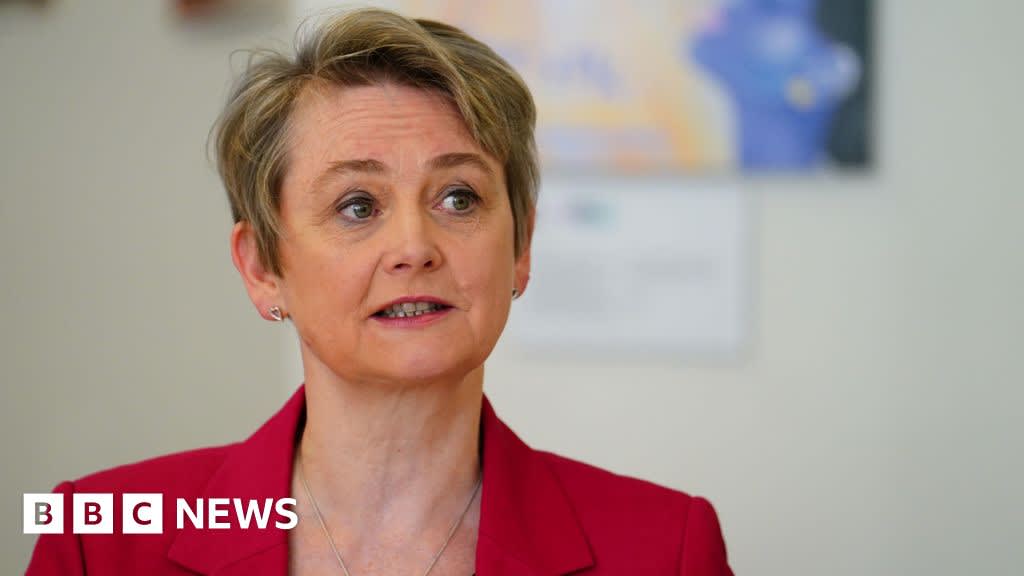The government is set to reject internal advice to widen the definition of extremism to include potentially violent environmentalists, the far left, conspiracy theorists and men prejudiced against women.
The BBC has been told Home Secretary Yvette Cooper does not agree with the central findings of a rapid “sprint” report she commissioned last year, and will order the government to continue to focus on Islamist and far-right extremism.
It comes after sections of the report were leaked to the Policy Exchange think tank, which criticised the recommendations.
A Home Office spokesperson said the government is “considering a wide range of potential next steps arising” from the report.
In July 2024, Cooper commissioned Home Office officials to conduct a rapid review of the UK’s approach to extremism, in the wake of the last summer’s riots across the UK following the murder of three young girls in Southport.
The review was tasked with shaping a new counter-extremism strategy, addressing online and offline threats from Islamist and the far-right alongside a broader spectrum of extremism.
Speaking at the time, Cooper said the review would “identify any gaps in existing policy which need to be addressed to crack down on those pushing harmful and hateful beliefs and violence”.
Behaviours of concern include violence against women, spreading misinformation and conspiracy theories, fascination with gore or involvement in the online subculture called the “manosphere” – which promotes misogyny and opposition to feminism.
According to Policy Exchange, the report admits many who display such behaviours would not count as extremist.
Policy Exchange has not made public the leaked version of the Home Office report, but published its own assessment which quoted extensively from the document.
The government’s current strategy, known as Contest, is “ideologically agnostic”.
But counter-extremist officers focus most their efforts tackling Islamism and right-wing extremism – the two most dominant threats to the UK.
MI5 Director Ken McCallum said in October that UK counter-terror efforts deal 75% with Islamist threats and 25% with far-right extremists.
The report urges expanding extremism’s definition to cover, alongside Islamists and extreme right-wing:
The Home Office review found claims of two-tier policing, where two groups are allegedly treated differently after similar behaviour, were a right-wing extremist narrative leaking into mainstream debates.
The Policy Exchange authors, who released the Home Office findings, said the review “runs in the wrong direction”.
Former journalist and government advisor Andrew Gilligan and Paul Stott, the head of security and extremism at Policy Exchange, said: “The purpose of counter-extremism and counter-terrorism is to defend the security of the country, its democratic values and institutions against those whose beliefs and acts intentionally threaten them.
The report’s recommendations “risk swamping already stretched” security services, while redefining extremism “threatens free speech,” the authors said.
Source: www.bbc.com
